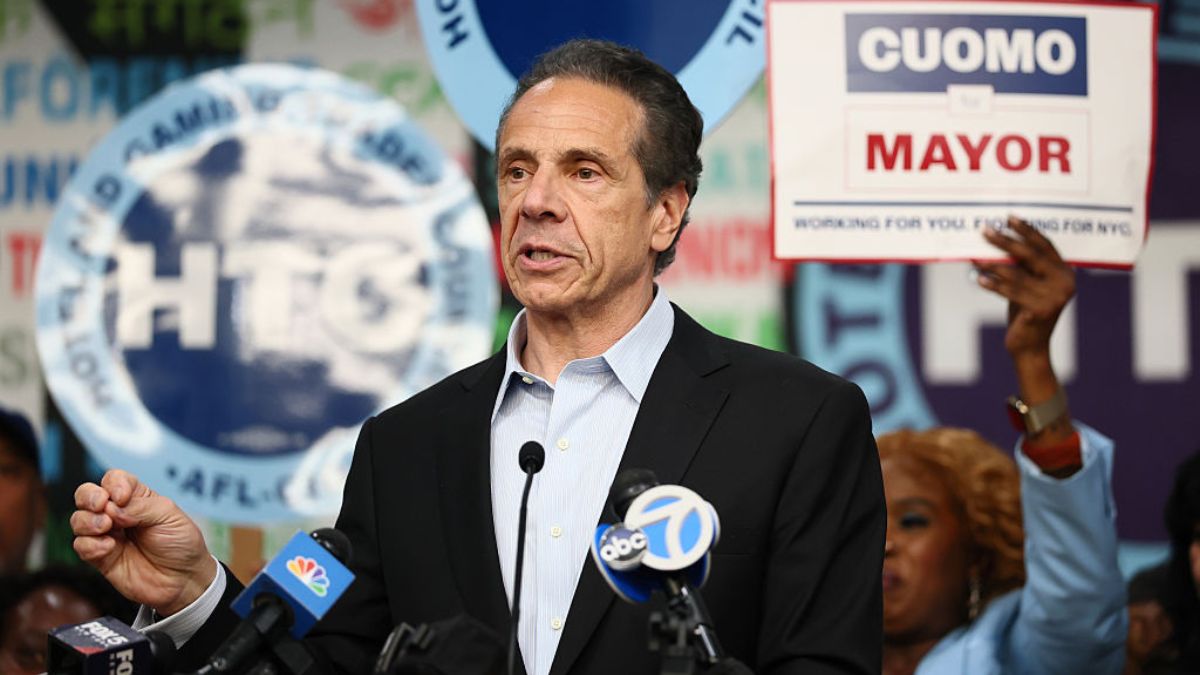
Photo by Michael M. Santiago/Getty Images
Three years after New York Democrats called for Andrew Cuomo’s resignation over sexual harassment claims, many are now supporting his mayoral campaign, highlighting broader concerns about political character and credibility in American leadership. This shift shows how drastically New York City’s political landscape has changed, with party leaders choosing to align with the former governor despite their previous opposition.
According to Politico, recent polls show Cuomo leading the Democratic primary race, though the gap is narrowing with his main challenger, Assemblyman Zohran Mamdani of the Democratic Socialists of America (DSA). This development has revealed the weakened state of local Democratic Party organizations.
“It would be a risk for all these political leaders to say, ‘We’re going to try to stop Cuomo,’ if he ultimately wins,” said Tyrone Stevens, a former Cuomo aide. Stevens explained that no single person or organization has enough political power to prevent Cuomo’s potential victory.
How the collapse of political clubs changed New York City politics
The city’s traditional political structure has significantly weakened over the decades. The number of Democratic clubs has fallen from over 1,000 before World War II to approximately 75 today, with only a few maintaining any real influence.
This decline has led to decreased voter participation in local elections. While 93 percent of registered voters cast ballots in 1953, only about 20 percent voted in the 2021 election. Despite having more than twice as many registered voters as in 1953, only half as many people actually vote now.
The city’s matching funds system, which provides public money to match small campaign donations, has changed how politics works in New York. While the program aimed to reduce corruption, it has shifted power away from political organizations to individual candidates. The amount of public funding has grown from $4.5 million in 1989 to $126.9 million in 2021.
Cuomo’s name recognition has become his biggest advantage in this changed political environment. Party leaders are supporting him partly because they fear the consequences of opposing him if he wins. As mayor, Cuomo would have the power to grant or deny jobs and favors to his supporters or opponents, a concerning pattern of political power plays and international conflicts that reflect broader issues in American governance.
The race has become largely a contest between two “superstars”: Cuomo with his established name recognition, and Mamdani, who has gained popularity through social media. While Mamdani has strong support among younger voters and on social media platforms, his backing from the DSA may not be enough to win citywide, as the organization has limited reach beyond certain areas of Queens and Brooklyn.



Published: Jun 18, 2025 01:20 pm